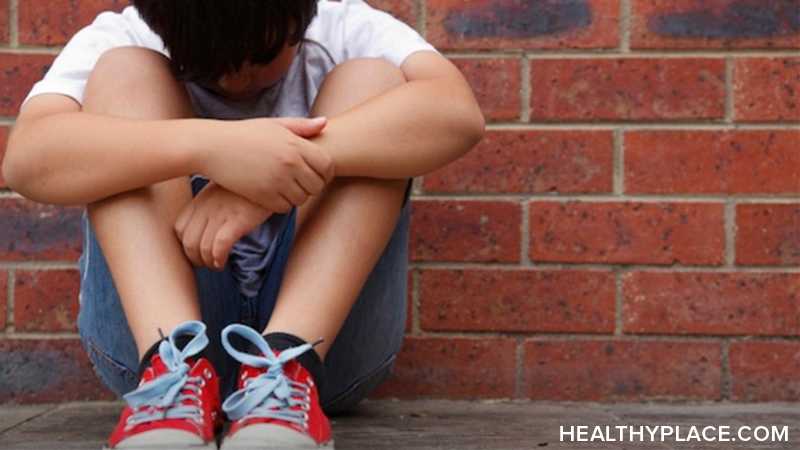What Parents Need to Know About Bullying

If your child is a victim of a bully, you, as a parent, can help. Learn the signs of bullying, then learn how to help your child deal with the bullying.
What causes a person to become a bully?
There are a number of reasons that a child or adolescent becomes a bully. He or she may need to cover his own feelings of inadequacy. He may lack good adult role models. If he sees parents bullying him or each other, he may regard this type of behavior as simply the way one should act. Other children fall in with a peer group that uses bullying. They may learn it from these friends. In some cases, the behavior improves when the child is separated from that peer group, and makes new friends.
Which children are most likely to be the victims of a bully?
- Children who are isolated, physically or socially
- Children who are perceived as different
- Sensitive children
- Children with poor social skills
- Sometimes children who are just in the wrong place at the wrong time
Sometimes parents may not know if their child is being bullied. Some children are intimidated into secrecy. They may also keep quiet because they feel shameful that they have allowed this to happen. They may fear that the parents will either criticize them or that the parents will intervene in a way that will make everything worse.
What are the signs that your child is the victim of a bully?
One may see non-specific signs of school distress. These might include:
- falling grades
- physical complaints on school days
- lack of interest in school work or sports
More specific signs would be:
- unexplained injuries or torn clothes
- missing belongings or money, or repeated requests for more money
- If someone is taking your child's lunch, he or she may come home hungry even though he took an adequate lunch to school.
- bedwetting
- wants to carry a protection item, such as a knife
How can I address bullying with my child?
You need to know how to get your child talking about his concerns. It is best to broach the subject at a calm neutral time.
- Ask general questions about whether something is bothering your child.
- Get as detailed a narrative as possible. Avoid interrupting or judging.
- Try to stay calm and do not make outraged statements while your child is telling his tale.
- Avoid offering premature solutions.
- You may not get the entire story on the first telling. Be patient and bring up the topic again later.
Finally, if you feel that something is going on and suspect that your child is withholding information, call his or her teacher.
You should also reassure your child that he or she isn't to blame. Explain that bullies are often confused or unhappy people who don't feel good about themselves.
Also consider asking your child thoughtful questions, such as:
- What's it like walking to the bus stop or home from school?
- What's it like on the bus ride to and from school?
- What happens on the playground during recess or before or after school?
- What happens in the hallways at school or during lunchtime?
- Have any bullies in the neighborhood or at school threatened anyone you know?
- Do some kids you know get emails, instant messages, or text messages that are upsetting, threatening, or insulting?
This approach might make it easier for your child to talk about bullies because it isn't as personal and emphasizes that other kids experience bullying, too.
How can you help your child deal with the bullying?
First, help teach him to avoid being an easy target. Start with posture, voice and eye contact. These can communicate a lot about whether you are vulnerable. Practice with a mirror or even videotape.
- Tell your child to avoid isolated places where no one can see or hear him.
- He should learn to be vigilant for suspicious individuals or for trouble brewing.
- If bullying starts, he might be able to deflect it with humor or by changing the subject.
He should run over a list of positive attributes in his mind. This reminds him that he is worthy of something better than bullying behavior.
- Teach your child not to obey the commands of the bully. Often it is better to run away than to comply.
- The parent may help the child make more positive friends. If he or she sticks around with a group, he is less likely to be a target.
Finally, if the child sticks up for other children he sees being bullied, people may get the idea that he is not someone who tolerates bullies.
What if my child is physically threatened?
The child must learn to discriminate the difference between social bullying and more dangerous physically threatening situations. If he is in an isolated place and truly feels physically threatened, he should give the bully the item he demands. However, if someone is demanding that he get into the car of a stranger, he should resist with as much force as possible. Once he gets away, he should notify a responsible adult as soon as possible.
Some children benefit from a good martial arts class. It is important to select an instructor who talks about alternatives to physical violence and who teaches children how to get out of dangerous situations with the least amount of physical contact. Children who stick with these lessons rarely use their skills in aggressive ways. The discipline often raises their self-esteem which makes them less likely to become a target.
What if your child is unable or unwilling to take these measures (or if the measures are ineffective?)
The parent should privately contact the teacher or guidance counselor. Describe the problem and your concerns. Follow up regularly to make sure that any plan is followed consistently and to make sure that the system is being followed. Sometimes if the bullying is chronic or severe, the parents and teacher may have to take decisive action. They may ask the bully to apologize, verbally or in writing. They may insist that the bully stay a certain distance from the victim. The teacher may make an effort to seat or group the child with more supportive peers.
These guidelines may need to be modified according to the child's age or the intensity of the bullying. In general, the older the child, the more the parent acts as a coach and the less the parent or teacher intervenes directly. However, when there are physical or sexual actions, direct adult intervention may be justified at any age.
Suggestions for working with victims of bullying:
- Often victims, particularly those who have been victimized many times, are withdrawn and are afraid of social interaction. These children often profit from social interactions with younger children, where they may be less afraid to open up or show some leadership.
- Practice with kids some strategies of ways they can respond when being bullied. Help them identify times when they are likely to be harassed, and see if there are ways to avoid those situations. Determine the exact nature of the bullying behavior, and help them practice some things to say or do. Here are some specific strategies:
- Laugh or ignore comments or teasing. Bullies delight in you being scared and getting a big reaction. Eventually, they will leave you alone.
- Tell them to buzz off or shout GO AWAY!! Say it as angrily as you can and walk away immediately. Practice in the mirror.
- Stay with a crowd. Bullies usually pick on kids who are alone. Suggest that children walk to school or sit on the bus with someone who can protect them.
- If you are alone with a crowd that picks on you, ask him or her why she is mean to you.
- For both groups, it is helpful to pair them up with children who are neither bullies nor victims, as they can be great teachers of appropriate behavior.
About the author: Dr. Watkins is Board Certified in Child, Adolescent & Adult Psychiatry
APA Reference
Staff, H.
(2021, December 17). What Parents Need to Know About Bullying, HealthyPlace. Retrieved
on 2024, June 20 from https://www.healthyplace.com/abuse/bullies/what-parents-need-to-know-about-bullying



